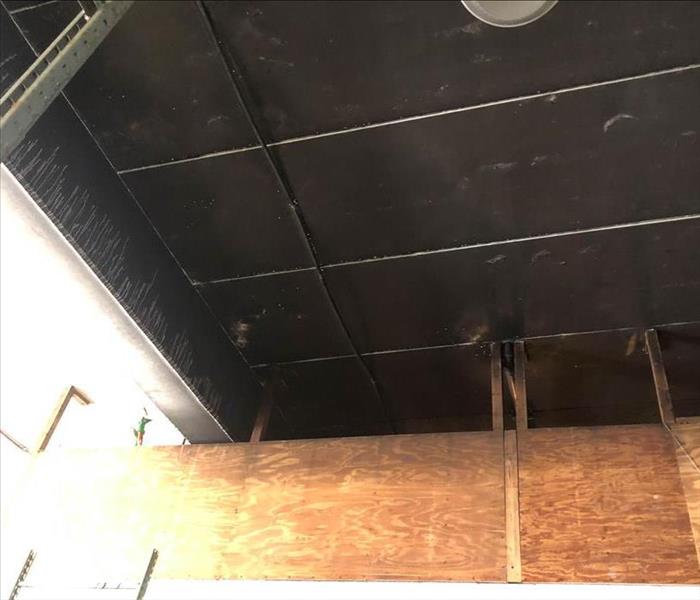Top 5 Things That Should Be Replaced, Not Cleaned, After Fire Damage
12/16/2023 (Permalink)
 When faced with the aftermath of a fire, it's important to make informed decisions about what to clean and what to replace.
When faced with the aftermath of a fire, it's important to make informed decisions about what to clean and what to replace.
Fire damage can be devastating, leaving behind charred remnants and lingering odors. While it's essential to restore your property as quickly as possible, there are some items that are best replaced, rather than attempting to clean and salvage. In this blog, we'll discuss the top 5 things that should be replaced after fire damage, ensuring the safety, cleanliness, and efficiency of your home or business.
Insulation
Insulation is often one of the first things to consider replacing after a fire. Even if it doesn't appear damaged on the surface, it can absorb smoke and soot, which can release harmful particles into the air over time. Replacing insulation is crucial for maintaining indoor air quality and preventing health issues. Consult with a professional to determine the extent of the damage and the type of insulation that best suits your needs.
Drywall
Drywall is another item that is often better replaced than cleaned after a fire. Smoke and soot particles can penetrate the drywall, making it difficult to completely remove the odors and stains. Replacing affected drywall is a more effective way to eliminate the visual and olfactory reminders of the fire. Be sure to consult with a professional for proper removal and installation to ensure the job is done correctly.
Electrical Wiring and Components
Fire damage can weaken electrical systems and create a significant safety hazard. Damaged wiring and electrical components should be replaced to avoid the risk of electrical fires or other hazards. An electrician should inspect the system thoroughly to identify and replace damaged wiring, outlets, switches, and circuit breakers. This is crucial for the safety of your property and its occupants.
Carpet and Flooring
Carpets and flooring materials can trap smoke and soot particles, making them difficult to clean thoroughly. Even if they appear undamaged, the odors can linger, affecting indoor air quality. Replacing carpets and flooring is a more effective way to ensure a fresh and clean environment. Consider non-porous flooring options like tile or laminate for added durability and ease of maintenance.
HVAC Ductwork
Your HVAC (Heating, Ventilation, and Air Conditioning) system can spread smoke and soot throughout your property if not properly cleaned or replaced. After a fire, it's essential to have your HVAC ductwork inspected and cleaned by professionals. In some cases, replacing the ductwork might be the most effective solution to prevent the circulation of harmful particles throughout your home.
When faced with the aftermath of a fire, it's important to make informed decisions about what to clean and what to replace. Some items, like insulation, drywall, electrical components, carpet and flooring, and HVAC ductwork, are often better off being replaced to ensure the safety, hygiene, and efficiency of your property. It's crucial to consult with professionals to assess the extent of the damage and provide the best solutions for your specific situation. Rebuilding after a fire can be a challenging process, but with the right guidance, you can restore your property to its former glory and create a safe and welcoming environment once again.


 24/7 Emergency Service
24/7 Emergency Service